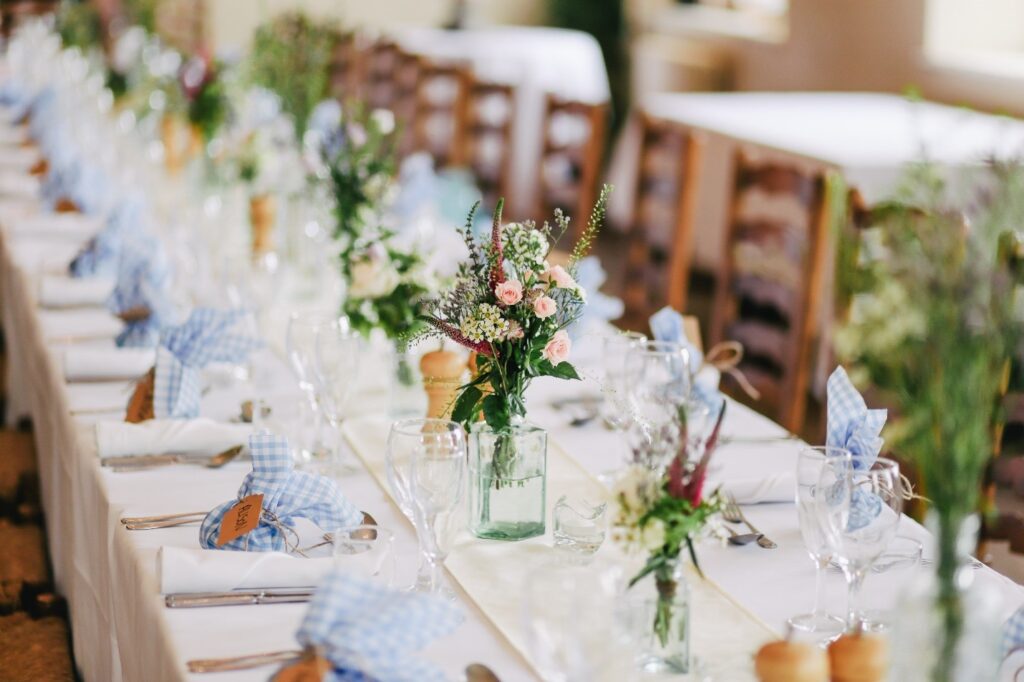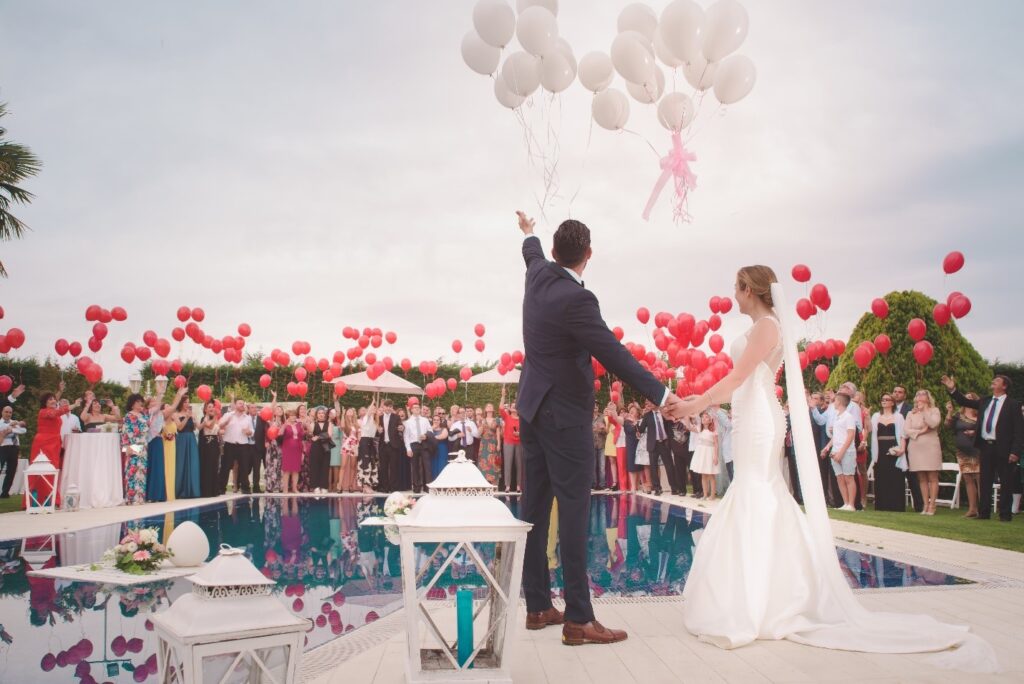Weddings are often portrayed as the ultimate celebration of love, a day when two people commit to spending their lives together. However, the wedding industry that has evolved around this significant life event has given rise to a contentious debate. Is it genuinely a celebration of love, or is it an exploitative business?
Over time, weddings have changed from intimate rituals to extravagant events that can cost as much as a modest house. The modern wedding market has turned a holy vow into an ostentatious spectacle, complete with gorgeous locations, pricey gowns, spectacular floral arrangements, and gourmet dining. Although there’s nothing intrinsically wrong with a couple opting to throw a lavish celebration of their love, the commercialisation of the business frequently encourages couples to go over budget and place an emphasis on appearances rather than the importance of their union.

The enormous expense of the wedding industry is one of the main complaints levelled against it. For instance, the average wedding expense in the US is more than $30,000. This is a significant financial outlay, particularly for newlyweds just starting out in life. Preying on the notion that your wedding day should be the “best day of your life,” the business pressures couples to spend more money than they can afford, which can result in overwhelming debt before they even start their married life.
Moreover, the industry has perpetuated unrealistic expectations. Shows like “Say Yes to the Dress” and extravagant celebrity weddings in the media have created an idealised vision of what a wedding should be. Brides-to-be, in particular, often feel pressured to have a wedding that rivals those in glossy magazines or on reality TV. The relentless pursuit of perfection can overshadow the very essence of the occasion – the love and commitment shared between two people.
Another urgent problem is the wedding industry’s abuse of emotional weakness. Couples frequently discover that the details of their special day emotionally consume them. From florists to photographers, vendors profit from this sentimental connection by charging more for their services. The cost of wedding-related goods and services can appear arbitrary, as if the sentimental value justified the high prices.
Not to mention the ubiquitous “wedding tax” – the tendency for prices to inflate when a product or service is associated with a wedding. For example, a plain white dress might be affordable, but the moment it’s labelled a “wedding dress,” the price skyrockets. This kind of price discrimination feels exploitative and is a clear indicator of an industry that capitalises on emotional attachment.
The problem of aggressive sales techniques also exists. Couples may feel pressured into overspending due to a variety of factors, including pushy bridal shops and excessively forceful wedding planners. The relentless marketing engine of the wedding business frequently takes advantage of couples’ emotions as they strive for the ideal wedding day.

Another issue is how weddings affect the environment. The wedding industry has an adverse effect on the environment in addition to finances. Weddings are known for their grandeur and extravagance, which can result in wasteful usage of single-use plastics and abandoned décor. Although eco-friendly options are still being promoted by the industry, sustainable weddings are becoming more and more fashionable.
So, is there any hope for a wedding industry that truly celebrates love without exploiting couples? One solution is to prioritise the essence of the event over its materialistic aspects. A wedding is fundamentally about love, commitment, and the celebration of two people coming together. Couples should be encouraged to personalise their weddings in ways that reflect their unique bond rather than conforming to industry standards.
Transparency must also be embraced. Pricing for couples should be transparent and up front, with no surprises or unanticipated expenses. They ought to have the authority to decide for themselves, based on their values and financial situation.
Furthermore, there is a growing trend towards small-scale, minimalist weddings that place emphasis on the experience rather than quantity or grandeur. Micro weddings, elopements, and backyard ceremonies have become more and more common because of their relevance and genuineness.
Government rules have the potential to rein in the excesses of the wedding market. Certain nations have laws requiring companies to list any extra fees in contracts pertaining to weddings. This can shield married couples against dishonest suppliers and unstated expenses.
Ultimately, the wedding industry should be about celebrating love, not profiting from it. It’s time for couples, vendors, and society at large to reassess what truly matters when it comes to weddings. Love should be the focal point, not commercialism. It’s time for the wedding industry to evolve into a more ethical and authentic celebration of love, rather than an exploitative business that preys on emotion and perpetuates unrealistic expectations.
Sources
- https://www.teenink.com/opinion/love_relationships/article/1026430/The-Exploitation-Of-The-Wedding-Industry
- https://everydayfeminism.com/2017/04/wedding-industrial-complex/
- https://amp.cnn.com/cnn/2017/12/15/africa/nigerian-wedding-industry/index.html
- https://www.africa.com/entrepreneurship-in-the-wedding-industry/




